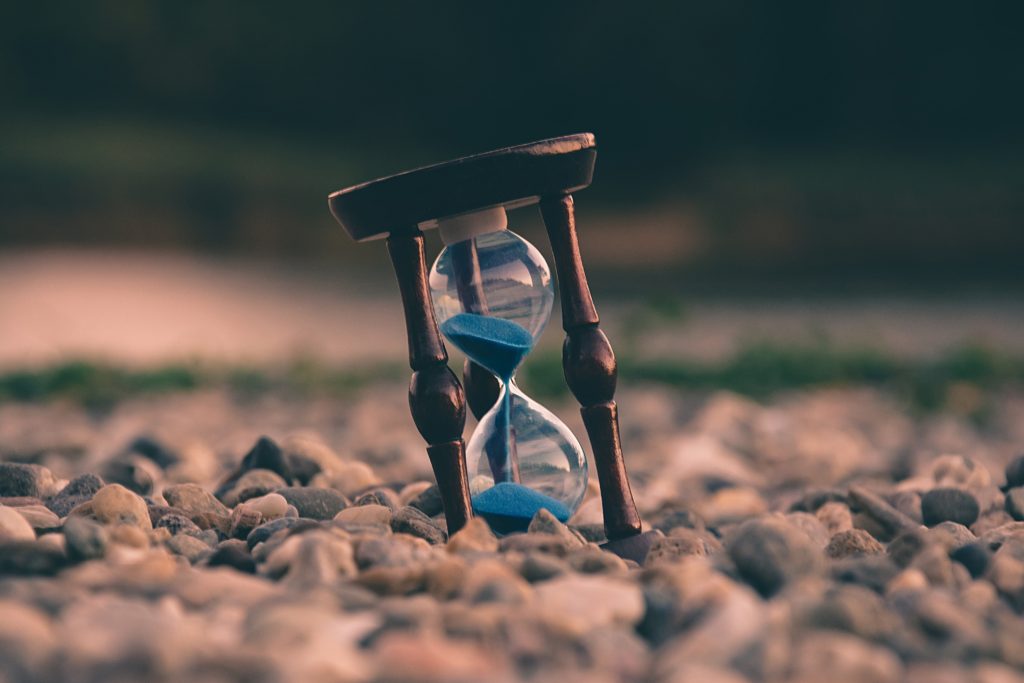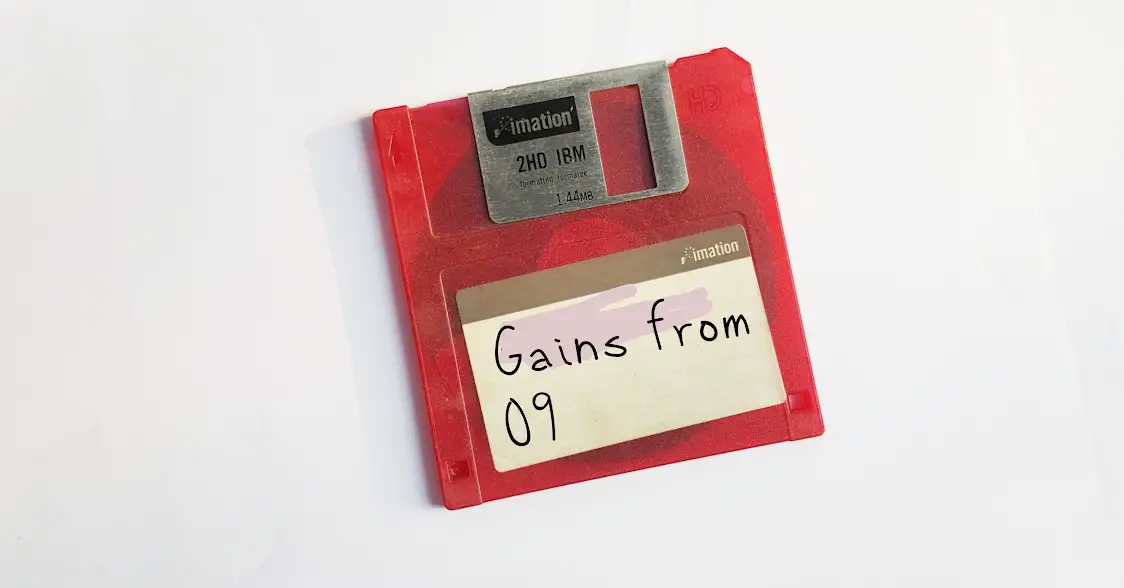Muscle memory is your bodies ability to regain, previously gained muscle. Studies show that muscle memory may last up to 15 years, or possibly forever.
A few years back, I had a friend who was incredibly invested in fitness. She trained hard, ate incredibly well, and got her sleep in.
She also had the results to show for. She could out bench most guys at her gym, her squat was in the mid-300s, and she had the body of a goddess.
But then she injured her low back. Her sentence?
Three months out of the gym. No lifting of any kind and no cardio. Only rehab movements.
To someone as dedicated as her, this might as well have been a life sentence. She lost a fair amount of muscle, gained some fat, and saw her bench press drop to a measly 95 pounds.
But once she got back to the gym and could train properly, she managed to get herself back to her old form in record time. Where it took her nearly seven years to get the results initially, she now regained everything in a tenth of that time.
And no, she didn’t know some ‘ancient Chinese secret’ to gains. What she experienced was the power of muscle memory. And you can, too.
What is Muscle Memory (As It Relates to Bodybuilding)?
Muscle memory sounds good, right? Almost too good to be true. This is one of those cases where things are as they seem.
I’m sure you’ve heard the argument that bodybuilding is an ungrateful sport. So long as you give it everything you have, you’re okay. But stop training for a bit and, oh boy, you’re losing everything. Forever.
This is partially true. Research seems to suggest that we can hold our progress for about two weeks without training before we begin to lose them (1). You’ll get weaker, and your muscles will drop in size (2). Even though it’s entirely possible to maintain a good physique with little effort, you still need some training to achieve that.
But, if you get back to serious training after a long layoff, you’ll find yourself regaining your old form much faster than it took to achieve it initially. Much like my friend, you can expect to recover your old shape back five to ten times more quickly.
If you’ve been there before, you know there is a lot of truth to it. If not, then you might be skeptical right now. But the fact is, muscle memory is something we can all benefit from because it is a fundamental part of our physiology.
But how does it work?

The Science Behind Muscle Memory
Cellular memory is a well-known phenomenon within the body. After all, it’s that process precisely, which makes us immune to many viruses that we’ve suffered from in the past. The body creates and stores memory cells which lay dormant for years and come out if we are affected by the same virus to destroy it quickly.
Now, onto the muscles.
The typical cell in your body has a nucleus, which is often referred to as the ‘control center.’ Muscle cells (also known as myocytes) are a bit different in the fact that they are larger, longer, and tubular. These cells also have many nuclei, each ‘overseeing’ a specific area of the cell (3).
Each nucleus has a limit of how much area it can cover. Meaning, once a muscle becomes big enough, the already existing nuclei are stretched to their overseeing limit, and you are unable to grow the muscle further.

Imagine that each nucleus is a security guard. If you commission a dozen of them to guard a building, they’ll do just fine. But if you suddenly instruct them to patrol the whole neighborhood, it would be impossible for them to cover the entire area.
The solution? We hire more security guards. In the case of our muscles, the body adds new nuclei within the muscle cells. The thing is, muscles cannot produce these nuclei – they must be taken from satellite cells (4). These are cells that lie dormant around muscle fibers and are occasionally called upon to help repair and grow muscle tissue.
When needed, satellite cells fuse with muscle cells and donate their nuclei (5). The ever-growing arsenal of nuclei within our muscle cells allows us to keep growing for years.
But here’s the interesting part:
Once you stop training, your muscles shrink (become atrophied), but the accumulated nuclei stick around (5). So once you start training again, your muscles grow at a much faster rate, back to their original size.
For example, in one recent study, subjects trained for seven weeks then took seven weeks off and again trained for seven weeks (6). Researchers found that DNA-level changes that were brought about from training stood in place during the detraining period. Meaning, the muscle-building potential was written at the DNA level for later use.
One more paper has also found muscle memory to be a real phenomenon (7).
So, what does this all mean? Well, if you’ve built a significant amount of muscle mass (at least ten to twenty pounds over your baseline), you likely have a lot more nuclei in your muscle cells than before you began training.
Even if you take a break from training and lose some size and strength in the process, you’ll be able to regain it much more quickly. New satellite cells won’t have to donate their nuclei for your muscles to grow to their old size. Your muscle cells will instead use the early back-up point to restore their original size, which is far more efficient.

How Long Does Muscle Memory Last?
It’s clear that muscle memory is real and works incredibly well for bodybuilding. The question is, how long does it last?
Researchers who conducted the paper we looked at above couldn’t give a definitive answer but said that it would be for at least seven weeks (6). That was the duration of the detraining phase in their study.
Some hypertrophy experts suggest that these changes could last for many years and lead to quick regain of muscle mass even after a very long break from the gym.
In one study, researchers found that myonuclei are stable for at least fifteen years and might even be permanent (8). The author of the paper also writes:
However, myonuclei are harder to recruit in the elderly, and if the long-lasting muscle memory also exists in humans, one should consider early strength training as a public health advice.
So it’s better to start training early when muscle growth occurs more quickly. That will help you build and maintain muscle mass much more easily as you age.
Also, It’s not uncommon for someone to lift weights in high school or college, stop for a couple of decades, then get back to it and make incredible progress in several months. With the research we have so far and the anecdotal evidence, it’s fair to assume that muscle memory lasts for life.
The issue here is, carrying out human studies to determine the life of muscle memory is incredibly tricky. We would need to find many subjects who used to be active and muscular in their teens and twenties, then stopped training, lost their progress, and are now in their fifties, sixties or even seventies.
They also have to be eager to get back to regular training, be healthy enough to train effectively and be truthful about the gains they made decades ago.
Can it be done? I guess. But even if we don’t get an answer soon (or ever), we can still assume that muscle memory is for life and we can take full advantage.
Suggestion: After this article, check out this other article on Pump Some Iron called, “Do You Need to Eat Healthy to Gain Muscle?“

Does Muscle Memory Help You Build New Muscle Faster?
New lifters can build muscle at a much faster rate because their bodies aren’t used to the stress of training. The phenomenon is referred to as ‘newbie gains’ and usually lasts between three and nine months. Thanks to that sensitivity to training stress, the body ramps up many muscle-building processes, which includes large-scale infusions of myonuclei into muscle cells.
You can expect to build muscle and get stronger every week. But as you exhaust your newbie gains and go on to grow even more muscle, it becomes incredibly challenging to keep making progress. Building new muscle becomes difficult, the process of adding more nuclei to your muscle cells slows down tremendously, and your workouts need to become harder and more challenging to produce results.
This is the repeated bout effect in action (9). In other words, what got you here, won’t get you there. The more you expose your body to challenging training, the more resistant it becomes, and the less it feels forced to adapt further and improve.
Multiple processes are responsible for muscle growth, but satellite cell activation is one of the main issues here. As you become more jacked:
- Fewer satellite cell infusions occur;
- Your workouts must become progressively harder to cause a disruption significant enough to bring satellite cells to donate their nuclei;
- The homeostatic disruption that does occur results in much less satellite cell activation.
Some people believe that we can use this whole thing to our advantage and accelerate muscle growth. As we discussed above, you lose muscle mass when you stop training, but the accumulated nuclei stick around (likely for life).
Since we don’t lose our hard-earned nuclei, is there a way to ‘re-sensitize’ satellite cells to training disruptions, and thus kickstart the process of fusing satellite and muscle cells? Even if we could, would that help us build more muscle or increase our total capacity for muscle growth?
This is quite interesting, and there are some studies that ‘sort of’ look at this idea, though the researchers aren’t looking at the influence on satellite cell activity.
In one study, fifteen young, previously untrained men were divided into two groups (10). One group trained continuously for fifteen weeks and the other group trained for six weeks, took three weeks off, then resumed training for another six weeks.
After the fifteen weeks, researchers compared the results between the two groups. No significant differences were found between the two groups. Additionally, researchers didn’t see significant decreases in strength or muscle size after the three-week detraining period in the second group.
Another study had similar findings (11). In it, fourteen young and untrained men were divided into two groups:
- Group 1 trained continuously for 24 weeks.
- Group 2 repeated a cycle of six weeks of training followed by three weeks of detraining for a total of three times.
The training protocol of both groups consisted of performing the bench press three times per week at 75% of one-repetition max for three sets of 10 reps. After the first six weeks, both groups had gained similar strength and muscle, which is expected.
Group 1, however, saw a gradual decline in their progress after the initial six weeks, where group 2 had significantly better results during their training weeks in comparison. Overall, the results leveled off, and both groups gained similar strength and muscle mass over the 24 weeks.
Strangely, both groups made similar progress even though one of them didn’t train for six weeks. Here are some possible reasons as to why that is:
- All of the subjects in the two studies were newbies. Meaning, they were extremely sensitive to the stress of training. Had the researchers used more advanced folks, the results could have been different. We could also argue that beginners are more resistant to losing the initial results than those who are more advanced. This would explain why they didn’t lose much of their progress after three weeks of de-training.
- Both studies had small sample sizes. If there were more participants, the results could have shifted to a more significant difference between the groups.
- It’s possible that the people who took periodic breaks from training felt more motivated and enthusiastic, and thus put more effort into their workouts. Knowing that you have a few weeks of training before taking a break can be a big motivator to push yourself harder.
Also, both of these studies were relatively short-lived. So we can’t put a lot of weight on the results. Sure, both groups had similar results over 15 and 24 weeks. But how would these results change as the participants gain more experience and train for, say, a year, two, three, or more?
Can we realistically expect to train 25-30% less and still make the same progress in the long run with all other factors being equal?
Lastly, the periodic training groups didn’t gain more muscle. If anything, they matched the results of the continuous training groups.
Suggestion: After this article, you might want to check out, “Slow Bulk: How to Minimize Fat Gain While Bulking” It’s an awesome article on gaining muscle.

It’s common sense that if you want to achieve better results with something, you need to put more effort into it, not less. In the case of training, volume and intensity are critical factors for muscle growth. Not training doesn’t seem like the best strategy if your goal is to get better results.
With that said, the importance of taking a break from training is unquestioned. We need periods of less challenging workouts to recover, have a mental break, and get back with more energy and enthusiasm. But none of that is to say that you can’t achieve the same results with regular deload/recovery weeks.
So, What’s The Bottom Line And What Are Some Practical Takeaways?
Perhaps more than anything, muscle memory tells us that we can be out of the gym for weeks, months, even years (for one reason or the other) and not worry about losing our progress forever. Myonuclei accumulated through resistance training are likely for life and serve as a back-up point for our muscular development.
In other words, the progress we’ve made once comes back much easier the second time. We’ve upgraded our muscle-building ability for the foreseeable future, possibly even for life.
If you get injured or sick, and cannot – or should not – do your regular workouts, you can rest assured that you’ll get back to your old shape much quicker. You don’t have to push through the pain for the sake of keeping your muscle. Give yourself time, heal fully, and get back to training.
Research also shows us that we are much more resistant to losing our gains that we thought. As much as two weeks of de-training doesn’t appear to make us lose our progress. So you shouldn’t worry about going on vacation for a week or two after months of hard training for fear of losing it all.
The only disappointing bit is that we can’t use muscle memory to gain new muscle faster. Or maybe there is a way, but research hasn’t revealed it yet.
So, bodybuilding isn’t so ungrateful after all, who knew?
If you liked this article, please leave a comment. After that, go Pump Some Iron!
Follow me / Pump Some Iron on Instagram for updates @pump.some.iron

